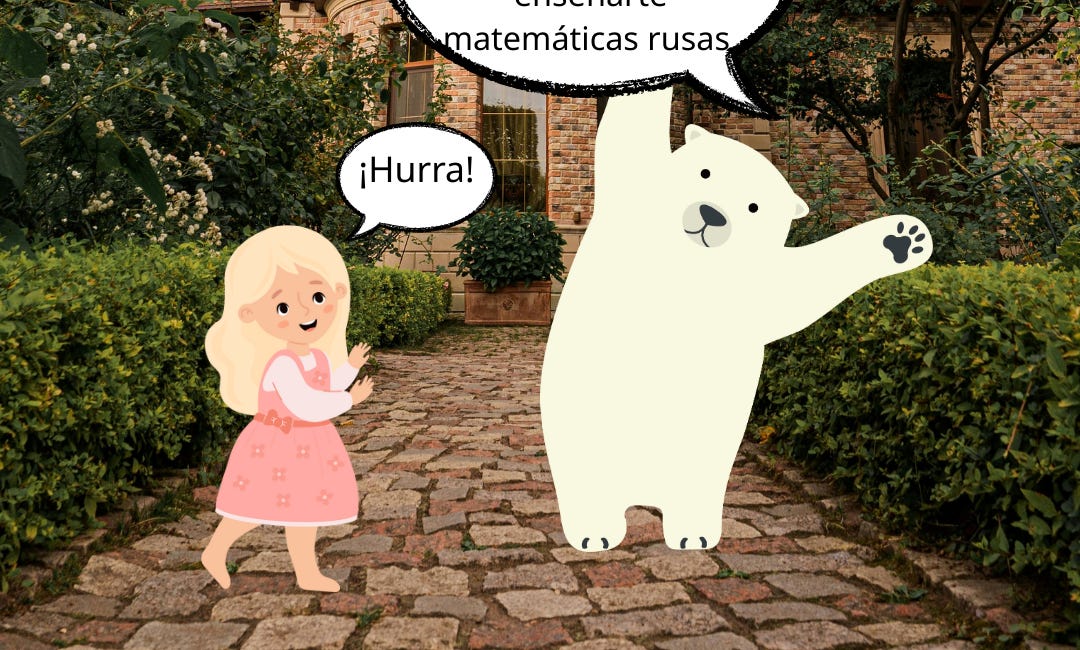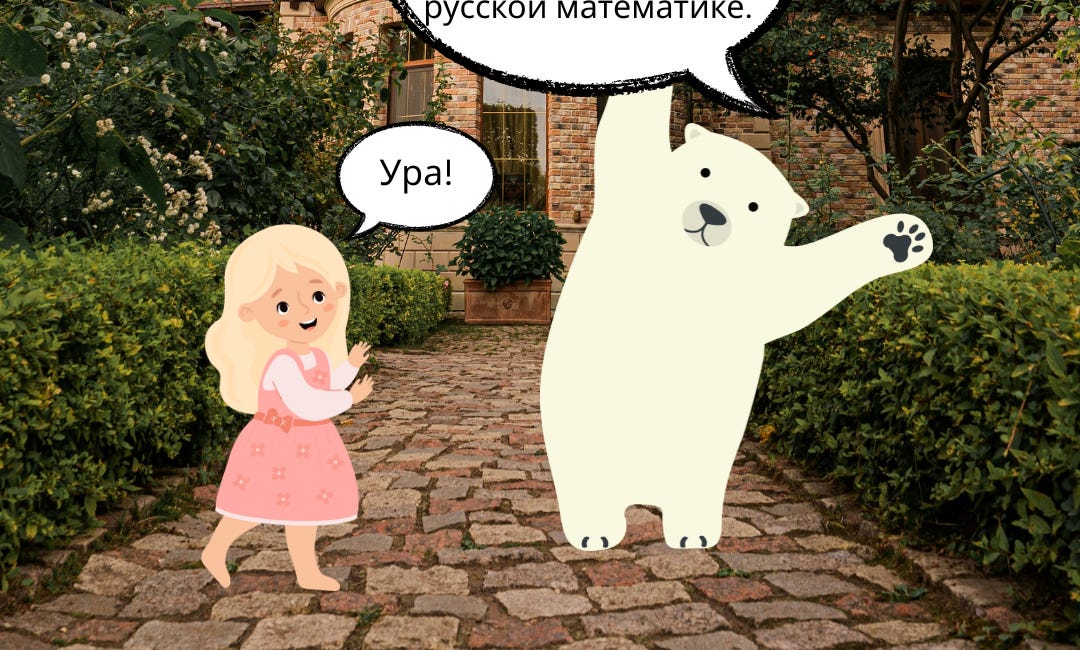Por qué elegimos una escuela judía rusa para nuestros hijos
Nuestros hijos asisten a la escuela judía Shaloh House Jewish Day School en Boston. Es una escuela judía rusa. Los alumnos van desde los apenas interesados en el judaísmo hasta los hijos del director ejecutivo.
Почему мы выбрали русско-еврейскую школу для наших детей
Наши дети учатся в еврейской школе Shaloh House Jewish Day School в Бостоне. Это русско-еврейская школа. Среди учеников — как те, кто едва интересуется иудаизмом, так и дети директора.
למה אנחנו שולחים את ילדינו לבית ספר יהודי-רוסי
הילדים שלנו לומדים בבית הספר היהודי Shaloh House Jewish Day School בבוסטון. זהו בית ספר יהודי-רוסי. התלמידים נעים בין כאלה שכמעט לא מתעניינים ביהדות, לבין ילדיהם של אנשי ההנהלה הבכירה..
Our children attend Shaloh House Jewish Day School in Boston.1 It’s a Jewish Russian school.2 The students range from barely-interested-in-Judaism to the children of the executive director.
Rabbi Rodkin runs Shaloh House, and I’ve never met anyone quite like him - or his wife, Sara, who teaches mathematics. They both constantly see the good in every human, have an indomitable will, and speak at least three languages fluently.
Everything I know about Russia, I learned in Shaloh House. Correct me if I'm wrong, but Russia is a country of highly productive, academically competitive students. The IQs are so high, not even vodka can bring them down!3 Russian children are 3–4 years ahead of American children in every subject, and ideally end up in the Olympics; preferably in either gymnastics or fencing. By bar or bat mitzvah, every Jewish child is expected to be a chess master.
Russians eat only healthy, delicious food and never waste anything. They wear crisp uniforms that say “Shaloh House Jewish Day School,”4 rarely miss a day of school, and pick up trash when they see it. This is because they are responsible citizens.
Rabbi Rodkin says so, and I have learned never to bet against him. But this tells you something about the values the school tries to instill: structure, responsibility, and pride in who you are.
How Did We Get Here?
We’re not exactly your stereotypical Shaloh House family. We’re not Russian. We’re not Chabad. We’d never even heard of Math Kangaroo before. But we’re blessed with high-energy children of the kind who need structure, movement, and a sense of purpose. And those children are thriving here.
It all started when we enrolled our oldest in Shaloh’s summer day camp, Gan Izzy. I was not optimistic. I spent that first morning waiting for the inevitable call to come pick him up. It never came.
When I arrived to pick him up, he looked both happy and tired. “We’re learning to play chess at camp,” he told me. He was going into second grade. It made sense, in a way. For all I know, you can’t really be Russian without learning chess, any more than you can be culturally American without knowing baseball.
“Do you like playing chess?” I asked.
“I’m the worst kid in the whole bunk,” he said cheerfully. “Everyone else already knows how to play.” Then he added, “Today at chess, I learned that if you stack more than eight rooks, the tower falls over.” That didn’t sound like he was being tortured into becoming a chess prodigy.
At the end of the summer, they gave him a certificate that said he “always behaved and follows instructions.” I hung it in our living room and plan to keep it forever.
So we figured, why not try sending him to Shaloh House for school?
And so it began
We started with one child. The next year, two. Now, we have four — in Universal Pre-K, first, second, and fourth grade. That means that next year, we will have to send 8 children, according to Russian math. Maybe they'll take our chickens.
Speaking of which, when you enter Shaloh House, there’s a freshwater fish tank to your right (with frogs) and a saltwater one to your left (without frogs). (H/t to Alan aka dude from Minnetonkafor catching my error!) Once you’re inside, you can visit the parrots — and if you’re very lucky, the other pair of parrots who live in Rabbi Rodkin’s office. Moshe 🦜 and Kesha. 🦜
What makes Shaloh House particularly well-suited for our high-energy children is its approach to learning. They don't waste time. There’s a lot of homework. Honestly, there’s more academic pressure than I had anticipated. But the structure works. It’s the kind of environment where effort is rewarded, and the children have the opportunity rise to the challenge.
The Judaics are also excellent. The children learn spoken modern Hebrew alongside written biblical Hebrew, and they bring home a sheet on the weekly Torah portion every week. It’s not just cultural or symbolic; they’re actually learning how to read, think, and ask questions like Jews. Hebrew is used naturally throughout the day, and the Judaic studies are rigorous, not watered down.
There’s lots of outdoor time, and the kids generally aren’t allowed to opt out of it. In addition to the normal subjects, our children take part in active classes like gymnastics and gardening, and engage in hands-on learning activities. They are constantly in motion throughout the day.
The school provides kosher meals and snacks, which removes a major daily stress for me. I’m not particularly gifted at packing lunches. I’ve accepted this. Now, when a child refuses to eat lunch, I’ll get a concerned message asking what they can give him instead.
Proverbs says to raise each child according to their way.5 For our children, Shaloh House has been that way — a school that challenges them, supports them, and gives them a strong Jewish foundation. I genuinely hope more communities are able to build schools like this — places where religious learning, academic rigor, and warm community come together. Feel free to contact me at ishayirashashem@gmail.com.
Link: https://www.shaloh.org/templates/articlecco_cdo/aid/5200653/jewish/Elementary-School.htm
With apologies to everyone who prefers “Jews From The Former Soviet Union”. As one parent told me, “In Russia we were Jews. They didn't call us Russians. It's weird to be described as Russian.”
That’s a joke. Please don’t cancel me.
Yes.
Proverbs 22:6










So healing to read an article chock full of compliments!
A school article without criticism?! Amazing!